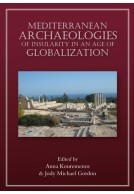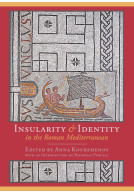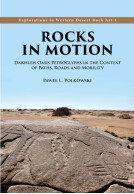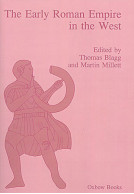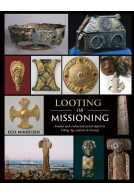Mediterranean Archaeologies of Insularity in the Age of Globalization (Paperback)
Edited by Jody Michael Gordon, Edited by Anna Kouremenos
Imprint: Oxbow Books
Pages: 304
Illustrations: b/w
ISBN: 9781789253443
Published: 5th June 2020
Script Academic & Professional
Imprint: Oxbow Books
Pages: 304
Illustrations: b/w
ISBN: 9781789253443
Published: 5th June 2020
Script Academic & Professional
You'll be £15.00 closer to your next £10.00 credit when you purchase Mediterranean Archaeologies of Insularity in the Age of Globalization. What's this?
+£4.99 UK Delivery or free UK delivery if order is over £40
(click here for international delivery rates)
Order within the next 5 hours, 31 minutes to get your order processed the next working day!
Need a currency converter? Check XE.com for live rates
(click here for international delivery rates)
Order within the next 5 hours, 31 minutes to get your order processed the next working day!
Need a currency converter? Check XE.com for live rates
Recently, complex interpretations of socio-cultural change in the ancient Mediterranean world have emerged that challenge earlier models. Influenced by today's hyper-connected age, scholars no longer perceive the Mediterranean as a static place where "Greco-Roman" culture was dominant, but rather see it as adynamic and connected sea where fragmentation and uncertainty, along with mobility and networking, were the norm. Hence, a current theoretical approach to studying ancient culture has been that of globalization. Certain eras of Mediterranean history (e.g., the Roman empire) known for their increased connectivity have thus been analyzed from a globalized perspective that examines rhizomal networking, cultural diversity, and multiple processes of social change. Archaeology has proven a useful discipline for investigating ancient "globalization" because of its recent focus on how identity is expressed through material culture negotiated between both local and global influences when levels of connectivity are altered. One form of identity that has been inadequately explored in relation to globalization theory is insularity. Insularity, or the socially recognized differences expressed by people living on islands, is a form of self-identification created within a particular space and time. Insularity, as a unique social identity affected by "global" forces, should be viewed as an important research paradigm for archaeologies concerned with re-examining cultural change.
The purpose of this volume is to explore how comparative archaeologies of insularity can contribute to discourse on ancient Mediterranean "globalization." The volume's theme stems from a colloquium session that was chaired by the volume's co-editors at the Annual Meeting of the Archaeological Institute of America in January 2017. Given the current state of the field for globalization studies in Mediterranean archaeology, this volume aims to bring together for the first time archaeologists working ondifferent islands and a range of material culture types to examine diachronically how Mediterranean insularities changed during eras when connectivity increased, such as the Late Bronze Age, the era of Greek and Phoenician colonization, the Classical period, and during the High and Late Roman imperial eras. Each chapter aims to situate a specific island or island group within the context of the globalizing forces and networks that conditioned a particular period, and utilizes archaeological material toreveal how islanders shaped their insular identities, or notions of insularity, at the nexus of local and global influences.
There are no reviews for this book. Register or Login now and you can be the first to post a review!
More titles by Anna Kouremenos
Other titles in Oxbow Books...







